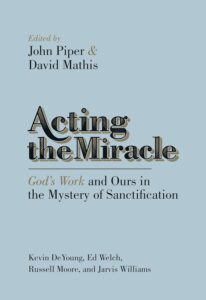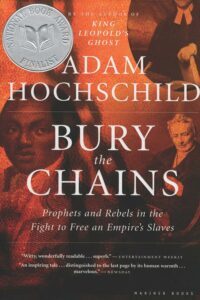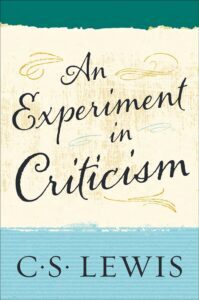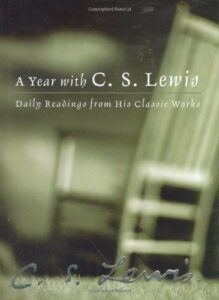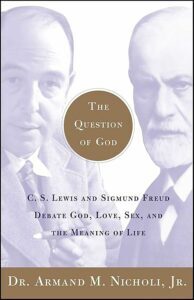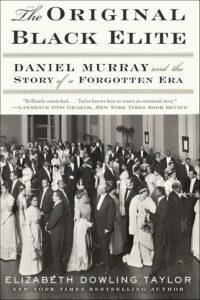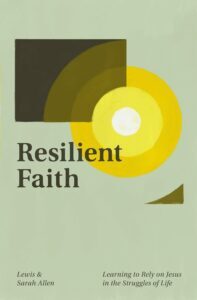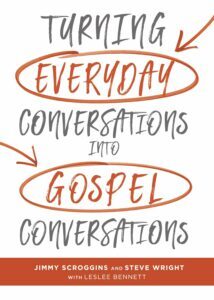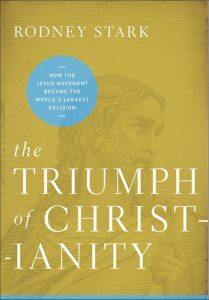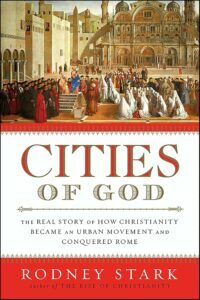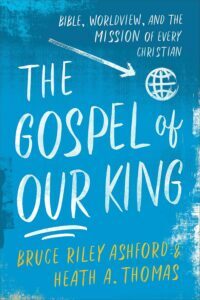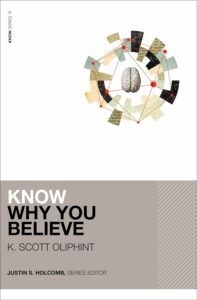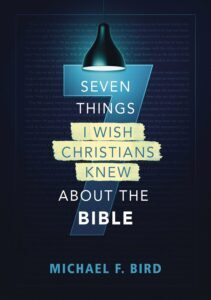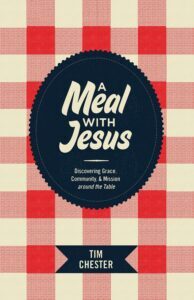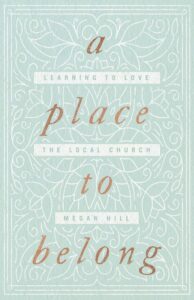Barnabas Piper's Blog, page 21
July 15, 2024
Kindle Deals for July 15
Some Kindle deals worth your mind and money today:
Deeper: Real Change for Real Sinners by Dane Ortlund – $5.99
Acting the Miracle: God’s Work and Ours in the Mystery of Sanctification contributions from John Piper, Kevin DeYoung Russell Moore, Ed Welch, and Jarvis Williams – $4.99
The Hole in Our Holiness: Filling the Gap between Gospel Passion and the Pursuit of Godliness by Kevin DeYoung – $4.99
On Writing (and Writers): A Miscellany of Advice and Opinions by C.S. Lewis – $2.99
Never Again: A History of the Holocaust by Martin Gilbert – $2.99
In the Garden of Beasts: Love, Terror, and an American Family in Hitler’s Berlin by Erik Larson – $4.99
Bury the Chains: Prophets and Rebels in the Fight to Free an Empire’s Slaves by Adam Hichschild – $2.99
Studs Terkel’s Chicago – $1.99
1968 in America: Music, Politics, Chaos, Counterculture, and the Shaping of a Generation by Charles Kaiser – $2.99
MY BOOKS:The Curious Christian: How Discovering Wonder Enriches Every Part of Life – $4.99
These links are Amazon affiliate links.
God Shows His Love For Us
“God shows his love for us in that while we were still sinners, Christ died for us” (Romans 5:8)
Talk is cheap. If I say I love someone but ignore and mistreat them, I am just showing that my words mean nothing. Love needs actions to be real.
Romans 5:8 tells us that “God shows his love for us in that while we were still sinners, Christ died for us.” Two things stand out about this verse.
First, is the word shows–God shows his love. Throughout the Bible, God tells his people he loves us, and this is how he proves it without a shadow of a doubt. He loves us so much that while we are still rebelling against him, he does what is necessary to save us, even though it is the most painful and costly thing.
Second, is that Jesus’s death on the cross for our sins was an act of God’s love. It says God showed his love for us when Jesus took the punishment for our sins. This means that Jesus fulfilled God’s plan to save. It wasn’t a fallback plan. It was God’s intentional act of ultimate love.
God’s words are never cheap, so when He declares his love for us, we know they are true. He showed it through the work of Jesus on the cross.
I originally wrote this post for my church, Immanuel Nashville, in our Daily Pulse email. If you want encouragement from God’s word delivered Monday thru Friday to your inbox, I encourage you to subscribe!
July 12, 2024
3 Things I Like This Week – July 12
Each week (give or take one or two here and there) I share three things I like – It could be a book, a movie, a podcast, an album, a photo, an article, a restaurant, a food item, a beverage, or anything else I simply enjoy and think you might too. You can find a whole pile of things, especially books, I like and recommend HERE.
1. Amazon Kindle Scribe If you poke around my website or follow me on social media you will know that I share a lot of kindle deals, and I would have you know that I put my money where my keystrokes are: I am an ebook reader. The Kindle Scribe is my favorite e-reader for a variety of reasons. First, the screen is the size of a full sized print book, so it feels like reading a real book. (Yes, print books are more real.) Second, kindles paper white technology makes the screen much more pleasant and less glaring than, say, an iPad. Third, I have found the writing/note taking feature to be really helpful. You can’t write in most e-books (a shortcoming of the file type, not the technology), but you can upload pdfs and write in them or create your own notes. I have found this especially helpful when traveling to speak because I can mark up my manuscript or outline by hand and teach directly from the scribe.
If you poke around my website or follow me on social media you will know that I share a lot of kindle deals, and I would have you know that I put my money where my keystrokes are: I am an ebook reader. The Kindle Scribe is my favorite e-reader for a variety of reasons. First, the screen is the size of a full sized print book, so it feels like reading a real book. (Yes, print books are more real.) Second, kindles paper white technology makes the screen much more pleasant and less glaring than, say, an iPad. Third, I have found the writing/note taking feature to be really helpful. You can’t write in most e-books (a shortcoming of the file type, not the technology), but you can upload pdfs and write in them or create your own notes. I have found this especially helpful when traveling to speak because I can mark up my manuscript or outline by hand and teach directly from the scribe.
2. Half Batch Brewing
 Caveat: I have no idea how much this recommendation will matter to anyone outside the Nashville area, but whatever. I am a beer appreciator, which is to say I am advanced well beyond a mere beer drinker but not so far as to be a connoisseur. I have sampled beers of all styles from around the world, and I can definitively say that the American craft brewing obsession with IPAs and sours is profoundly stupid, or at least narrow minded. This isn’t to say there are no good IPAs or sours, but rather that there are so many delightful, delectable, delicious beers beyond those two aggressively after-tasty styles. Half Batch Brewing in Hendersonville, TN (where I live) is leaning whole heartedly and well-craftedly into those other styles–Scottish Ales, Cream Ales, Lagers (both American & Mexican), Belgian Tripels, Red Ales, and more. And they do them all well, with balance and smoothness. Half Batch has quickly climbed the ranks of my favorite breweries, so if you happen to be in or around Nashville hot up their taproom or pick yourself up some. (The Fulkin Scottish Ale is my absolute favorite.)
Caveat: I have no idea how much this recommendation will matter to anyone outside the Nashville area, but whatever. I am a beer appreciator, which is to say I am advanced well beyond a mere beer drinker but not so far as to be a connoisseur. I have sampled beers of all styles from around the world, and I can definitively say that the American craft brewing obsession with IPAs and sours is profoundly stupid, or at least narrow minded. This isn’t to say there are no good IPAs or sours, but rather that there are so many delightful, delectable, delicious beers beyond those two aggressively after-tasty styles. Half Batch Brewing in Hendersonville, TN (where I live) is leaning whole heartedly and well-craftedly into those other styles–Scottish Ales, Cream Ales, Lagers (both American & Mexican), Belgian Tripels, Red Ales, and more. And they do them all well, with balance and smoothness. Half Batch has quickly climbed the ranks of my favorite breweries, so if you happen to be in or around Nashville hot up their taproom or pick yourself up some. (The Fulkin Scottish Ale is my absolute favorite.)
3. Good Poems
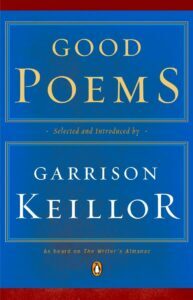 I love poetry. I’m not sure I know anything about it, or even how to define what makes good poetry, but I know what I like. And I love this collection, edited by Garrison Keillor. Mostly it is composed of poems that normal people can connect with rather than something the literati might judge you for disliking or, God forbid, not understanding. It is a delightful entry point for people intimidated by poetry but interested in trying more. As good poetry should do, it evokes and moves. And as every good poetry collection should have, it offers different styles and voices to connect with different kinds of readers.
I love poetry. I’m not sure I know anything about it, or even how to define what makes good poetry, but I know what I like. And I love this collection, edited by Garrison Keillor. Mostly it is composed of poems that normal people can connect with rather than something the literati might judge you for disliking or, God forbid, not understanding. It is a delightful entry point for people intimidated by poetry but interested in trying more. As good poetry should do, it evokes and moves. And as every good poetry collection should have, it offers different styles and voices to connect with different kinds of readers.
Kindle Deals for July 12
Some Kindle deals worth your mind and money today:
The Letters of J.R.R. Tolkien: Revised and Expanded Edition – $1.99
J.R.R. Tolkien: Author of the Century by Tom Shippey – $3.99
The 7 Habits of Highly Effective People by Stephen Covey – $3.99
River Kings: A New History of the Vikings from Scandinavia to the Silk Roads by Cat Jarmin – $1.99
Iron Empires: Robber Barons, Railroads, and the Making of Modern America by Michael Hiltzik – $1.99

Go Down Together: The True, Untold Story of Bonnie and Clyde by Jeff Quinn – $2.99
The Ministry of Ungentlemanly Warfare by Damien Lewis – $.99
Artemis: A Novel by Andy Weir – $2.99

The Curious Christian: How Discovering Wonder Enriches Every Part of Life – $4.99
These links are Amazon affiliate links.
July 11, 2024
Kindle Deals for July 11
Some Kindle deals worth your mind and money today:
Mere Christianity by C.S. Lewis – $.99
Surprised by Joy: The Shape of My Early Life by C.S. Lewis – $1.99
The Screwtape Letters by C.S. Lewis – $2.99
The Great Divorce by C.S. Lewis – $2.99
An Experiment in Criticism by C.S. Lewis – $1.99
A Year with C. S. Lewis: Daily Readings from His Classic Works by C.S. Lewis – $2.99
The Question of God: C.S. Lewis and Sigmund Freud Debate God, Love, Sex, and the Meaning of Life by Armand Nicholas – $3.99
Surprised by Laughter: The Comic World of C.S. Lewis by Terry Lindvall – $2.99
MY BOOKS:The Curious Christian: How Discovering Wonder Enriches Every Part of Life – $4.99
These links are Amazon affiliate links.
Kindle Deals for July 11
Some Kindle deals worth your mind and money today:
Mere Christianity by C.S. Lewis – $.99
Surprised by Joy: The Shape of My Early Life by C.S. Lewis – $1.99
The Screwtape Letters by C.S. Lewis – $2.99
The Great Divorce by C.S. Lewis – $2.99
An Experiment in Criticism by C.S. Lewis – $1.99
A Year with C. S. Lewis: Daily Readings from His Classic Works by C.S. Lewis – $2.99
The Question of God: C.S. Lewis and Sigmund Freud Debate God, Love, Sex, and the Meaning of Life by Armand Nicholas – $3.99
Surprised by Laughter: The Comic World of C.S. Lewis by Terry Lindvall – $2.99
MY BOOKS:The Curious Christian: How Discovering Wonder Enriches Every Part of Life – $4.99
These links are Amazon affiliate links.
July 10, 2024
Why Balance is Bad for Pastors
When I was a little boy, we used to go to a park near our house to play at the playground. I didn’t think about it then, but a significant amount of the equipment–and the games we played on it–depended on balance. There was a wooden balance beam, a seesaw, and some of those little rocking toys on oversized springs. We would walk up the slides and across the monkey bars. We would shimmy up the poles on the swing set and sit on top or hang from it. We would play “ground is lava,” where you had to leap from equipment to equipment without touching the ground. The point of every game was don’t fall.
That often feels like the objective (see also: threat) of navigating ministry and family life. Except this “game” is high stakes, and falling doesn’t lead to laughter with friends or mere scraped knees. Instead of a light-hearted adventure, this feels like a tightrope walk across a chasm of open flames, and if we fall, everyone gets battered and burned–the church, our kids, our spouses, and ourselves.
I have come to realize, though, that trying to balance ministry and family life is just another name for pitting the two against each other. It is a paradigm for unnecessary conflict. It puts them at opposite ends of a seesaw, which means one is nearly always up while the other is necessarily down. We need a new way of thinking about the relationship between family and ministry than “balance.” Two foundational biblical realities can help us see a new paradigm.
1. A Pastor’s Primary Responsibility Is to His FamilyFrom the first chapters of the Bible, we see God’s design for family and his valuing of families. We see this in the design for marriage and the gift of children. He calls children to honor their parents in the Decalogue (Ten Commandments). We see it in the commending and honoring of Jesus by his Father– “This is my beloved son” (Matthew 3:17, Matthew 17:5). God’s foundational design for humanity was the family, and his primary call to any parent was to prioritize the care and shepherding of their family. This is especially significant because family is the paradigm God uses to help us understand the church and not the other way around. So, while it is tempting for a pastor to think we are primarily responsible to the church, that is not God’s set of priorities or his paradigm. If he has given us a wife and kids, we are to care for them above all.
In isolation, that last sentence seems to pit the ministry against the family–like we are to pick our family over the church. In an unhealthy, dysfunctional context, that is true. But in a gospel-reflecting, healthy context, we need not make that choice because . . .
2. The Church Is a FamilyThroughout the Bible, God’s idea of family extends far beyond biology. Something more defines our closest, most meaningful relationships: Jesus Christ. Jesus himself said, “Who are my mother and my brothers? . . . whoever does the will of God, he is my brother and sister and mother.” (Mark 3:33, 35) When His disciples ask Him to teach them to pray, Jesus says, “When you pray, say, our Father . . .” Do you see what Jesus is saying in these two brief exchanges? He is expanding and defining what it truly means to be family to those who faithfully walk with Him. “Family” is not a mere metaphor or simile to help us understand the church. The Bible doesn’t say the church is like a family; it says we are family. We are brothers and sisters in Christ. We are children of God. Mark 10:29-30 explains what that means for us:
Jesus said, “Truly, I say to you, there is no one who has left house or brothers or sisters or mother or father or children or lands, for my sake and for the gospel,who will not receive a hundredfold now in this time, houses and brothers and sisters and mothers and children and lands, with persecutions, and in the age to come eternal life.”
These two biblical realities reframe everything for a pastor. We no longer need to see family on one side and church on the other. Rather, we should be able to see our family as part of the church and our church as part of our family. Instead of thinking, “How do I protect my family from the burdens of ministry?” we should be thinking, “How can I help my family love the church we are part of?” Meeting with a member is not a “task” any more than a conversation with your son or daughter is. An elders meeting is not a work meeting but a conversation among “parents” of the church family.
This may sound idealized and even impossible to many people in ministry, but it doesn’t have to be. Developing this kind of relationship with the church and with your family may not be easy (especially if there is a significant amount of dysfunction right now), but it is possible. And it is necessary for your joy, your family’s, and your church’s. Here are four steps you can take to foster this kind of relationship.
Speak to your family of meetings, whether with members or elders or whomever, as relational, not as tasks. While there might be an agenda and tasks to accomplish through these meetings, they are gatherings with brothers and sisters in Christ.Exercise discernment about what ministerial hardships you bring home. You want your family to be able to walk into church with a sense of participation and belonging, not with trepidation, suspicion, or looking for red flags.Open your home to the extent you are able. A church can’t be a family unless we eat together, laugh together, and have some sense of how each other lives.Learn to say “no” to requests from the congregation for the sake of your family. This might seem contradictory to the church being family, but in God’s design, there is a priority. A church member asking you to coffee cannot take precedence over your daughter in crisis or your son’s baseball game. By prioritizing your nuclear family, you contribute to their joy in the church and the church’s respect for them.Balance cannot be what we pursue in ministry and family. In the end, that will lead to falling off one side or the other at the expense of everyone. Instead, let us pursue familial unity in Christ for the good of our families, churches, and ministries.
This article was originally posted at The Focused Pastor
Kindle Deals for July 10
Some Kindle deals worth your mind and money today:
Welcome to Dunder Mifflin: The Ultimate Oral History of The Office by Brian Baumgartner & Ben Silverman – $2.99
Great at Work: The Hidden Habits of Top Performers by Morten T. Hansen – $3.99
John Wayne: The Life and Legend by Scott Heyman – $4.99
The Original Black Elite: Daniel Murray and the Story of a Forgotten Era by Elizabeth Dowling Taylor – $3.99
Newtown: An American Tragedy by Matthew Lysiak – $2.99
Across the River: Life, Death, and Football in an American City by Kent Babb – $2.99
What makes us human?: and other questions about God, Jesus and human identity by Mark Meynell – $2.99
Resilient Faith: Learning to Rely on Jesus in the Struggles of Life by Lewis & Sarah Allen – $2.99
Turning Everyday Conversations into Gospel Conversations by Jimmy Scroggins & Steve Wright – $4.99
The Triumph of Christianity: How the Jesus Movement Became the World’s Largest Religion by Rodney Stark – $3.99
Cities of God: The Real Story of How Christianity Became an Urban Movement and Conquered Rome by Rodney Stark – $2.99
MY BOOKS:The Curious Christian: How Discovering Wonder Enriches Every Part of Life – $4.99
These links are Amazon affiliate links.
July 9, 2024
Kindle Deals for July 9
Some Kindle deals worth your mind and money today:
Man in White: A Novel about the Apostle Paul by Johnny Cash – $2.99
Peace Like a River: A Novel by Leif Enger – $3.99
The Last of the Just by Andre Schwarz-Bart – $2.99
The Gospel of Our King: Bible, Worldview, and the Mission of Every Christian by Bruce Ashford & Heath Thomas – $3.99
The Pursuit of God: The Human Thirst for the Divine by A.W. Tozer – $1.99
Know Why You Believe (KNOW Series) by K. Scott Oliphint – $1.99
Describer’s Dictionary: A Treasury of Terms & Literary Quotations by David Grambs & Ellen Levine – $2.99
MY BOOKS:The Curious Christian: How Discovering Wonder Enriches Every Part of Life – $4.99
These links are Amazon affiliate links.
July 8, 2024
E-Book Deals for July 8
Some Kindle deals worth your mind and money today:
Seven Things I Wish Christians Knew about the Bible by Michael F. Bird – $1.99
Something Needs to Change: An Urgent Call to Make Your Life Count by David Platt – $1.99
A Meal with Jesus: Discovering Grace, Community, and Mission around the Table by Tim Chester – $3.99
Side by Side: Walking with Others in Wisdom and Love by Ed Welch – $3.99
A Place to Belong: Learning to Love the Local Church by Megan Hill – $3.99
The Compelling Community: Where God’s Power Makes a Church Attractive by Mark Dever & Jamie Dunlop – $4.99
My Grandmother Asked Me to Tell You She’s Sorry: A Novel by Fredrik Backman – $1.99
Coltrane: The Story of a Sound by Ben Ratliff – $2.99
The Curious Christian: How Discovering Wonder Enriches Every Part of Life – $4.99
These links are Amazon affiliate links.


